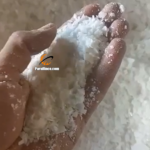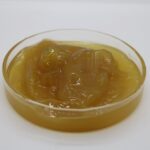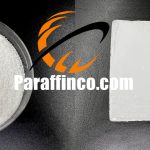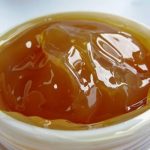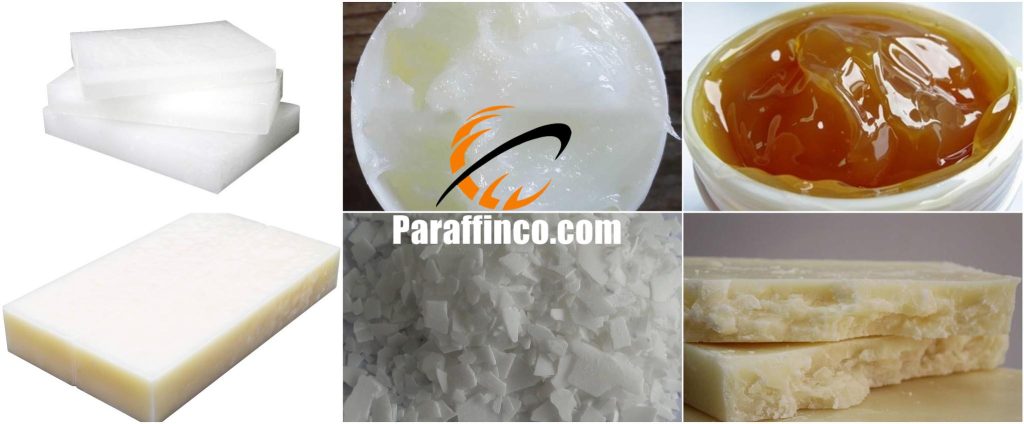
Types of Waxes: Microcrystalline, Polyethylene, Paraffin, Slack, Petroleum Jelly, and Residue Wax
Waxes are a diverse group of organic compounds that are essential in various industrial applications. Their unique chemical properties and versatility make them invaluable in industries ranging from cosmetics to construction.
This blog will explore the different types of waxes, including microcrystalline wax, polyethylene wax, paraffin wax, slack wax, petroleum jelly, PE Wax and residue wax. We’ll delve into their properties, uses, advantages, disadvantages, and why Paraffin Co. is the trusted Wax Supplier for these essential materials.
Types of Waxes
-
Microcrystalline Wax
Microcrystalline wax is a refined, high-molecular-weight hydrocarbon wax derived from petroleum. It is known for its fine crystalline structure, which makes it more flexible, and adhesive compared to other types of waxes.
Properties of Microcrystalline Wax
- Appearance: Typically, white to off-white
- Melting Point: 60-90°C
- Consistency: Pliable and tacky
- Solubility: Insoluble in water, soluble in organic solvents
Uses of Microcrystalline Wax
- Cosmetics: Used in lipsticks, creams, and lotions for texture and stability.
- Food Industry: Coating for fruits, vegetables, and cheeses to preserve freshness.
- Pharmaceuticals: Ingredient in ointments and balms for its binding properties.
- Industrial Applications: Used in adhesives, coatings, and rubber formulations.
Advantages of Microcrystalline Wax
- High melting point and viscosity.
- Excellent adhesive properties.
- Flexible and pliable, suitable for various formulations.
Disadvantages of Microcrystalline Wax
- Higher cost compared to paraffin wax.
- Limited availability depending on the region.
-
Polyethylene Wax
Polyethylene wax (PE wax) is a low-molecular-weight polyethylene polymer. It is known for its hardness, high melting point, and excellent stability.
Properties of Polyethylene Wax: PE Wax Properties
- Appearance: White, odorless, and tasteless
- Melting Point: 100-120°C
- Density: High density, crystalline structure
- Solubility: Insoluble in water, soluble in hydrocarbons
Uses of Polyethylene Wax
- Plastics Industry: PE Wax Used as a lubricant and dispersing agent.
- Coatings: Enhances the durability and scratch resistance of paints and coatings.
- Adhesives: Improves the performance and stability of hot melt adhesives.
- Rubber Industry: Acts as a processing aid and release agent.
Advantages of PE Wax
- High thermal stability and hardness.
- Excellent chemical resistance.
- Enhances the performance of other materials when blended.
Disadvantages of Polyethylene Wax
- Higher cost compared to natural waxes.
- Requires specific processing conditions.
-
Paraffin Wax
Paraffin wax is a white or colorless soft solid derived from saturated hydrocarbons. It is one of the most commonly used waxes due to its wide availability and cost-effectiveness.
Properties of Paraffin Wax
- Appearance: White, odorless, and tasteless
- Melting Point: 46-68°C
- Consistency: Soft and pliable
- Solubility: Insoluble in water, soluble in organic solvents
Uses of Paraffin Wax
- Candles: Primary material for candle making.
- Cosmetics: Used in creams, lotions, and ointments for texture and stability.
- Food Industry: Coating for cheese, fruits, and vegetables.
- Packaging: Used in wax paper and coating for corrugated boxes.
Advantages of Paraffin Wax
- Widely available and cost-effective.
- Versatile with numerous applications.
- Stable and easy to process.
Disadvantages of Paraffin Wax
- Lower melting point compared to other waxes.
- Limited chemical resistance.
-
Slack Wax
Slack wax is an unrefined or partially refined wax derived from the refining process of lubricating oils. It contains oil and has a lower melting point compared to fully refined waxes.
Properties of Slack Wax
- Appearance: Yellow to brownish color
- Melting Point: 45-65°C
- Oil Content: Varies from 5-30%
- Consistency: Soft and greasy
Uses of Slack Wax
- Rubber Industry: Used as a processing aid and extender.
- Polishes: Ingredient in floor and shoe polishes.
- Matches: Used in match production for smooth ignition.
- Board Sizing: Provides water resistance to cardboard.
Advantages of Slack Wax
- Cost-effective due to minimal processing.
- Useful in industrial applications where high purity is not required.
Disadvantages of Slack Wax
- Higher oil content limits its use in certain applications.
- Lower melting point and stability.
-
Petroleum Jelly
Petroleum jelly is a semi-solid mixture of hydrocarbons, originally promoted as a topical ointment for its healing properties.
Properties of Petroleum Jelly
- Appearance: Translucent, odorless, and tasteless
- Melting Point: 37-60°C
- Consistency: Smooth and semi-solid
- Solubility: Insoluble in water
Uses of Petroleum Jelly
- Cosmetics: Used in lip balms, skin moisturizers, and hair care products.
- Medical: Employed as a protective dressing and to prevent moisture loss.
- Lubrication: Used in mechanical and industrial lubrication.
- Household: Protects leather, polishes wood, and prevents rust.
Advantages of Petroleum Jelly
- Excellent moisture barrier and skin protectant.
- Versatile with numerous household and industrial applications.
- Stable and long-lasting.
Disadvantages of Petroleum Jelly
- Can be greasy and leave a residue.
- Not suitable for applications requiring high purity or stability at high temperatures.
-
Residue Wax
Residue wax is a byproduct of the petroleum refining process. It is a complex mixture of long-chain hydrocarbons and other organic compounds.
Properties of Residue Wax
- Appearance: Dark brown to black color
- Melting Point: Variable, depending on composition
- Consistency: Hard and brittle
- Solubility: Insoluble in water, soluble in organic solvents
Uses of Residue Wax
- Rubber Industry: Used as a processing aid and extender.
- Tire Manufacturing: Enhances the properties of rubber compounds.
- Adhesives: Component in industrial adhesives and sealants.
- Construction: Used in waterproofing and protective coatings.
Advantages of Residue Wax
- Utilizes a byproduct of petroleum refining, making it cost-effective.
- Useful in heavy industrial applications.
- Enhances the properties of rubber and adhesives.
Disadvantages of Residue Wax
- Dark color limits its use in aesthetic applications.
- Lower purity and stability compared to refined waxes.
Why Choose Paraffin Co. as Your Waxes Supplier?
Paraffin Co. is a trusted Wax Supplier of high-quality products, offering a wide range of products to meet diverse industrial needs. Here’s why Paraffin Co. stands out:
-
Quality Assurance
Paraffin Co. ensures that all their wax products meet stringent quality standards. Each batch undergoes rigorous testing to guarantee consistent quality and performance.
-
Customization
Paraffin Co. (Wax Supplier) offers customized solutions to meet specific application requirements. Whether you need a particular melting point, viscosity, or other properties, they can provide a tailored product.
-
Competitive Pricing
With a focus on cost-efficiency, Paraffin Co. offers competitive pricing without compromising on quality, making their waxes an economical choice for various industries.
-
Sustainable Practices
Paraffin Co. is committed to sustainability, employing environmentally friendly production methods and ensuring their products are biodegradable and non-toxic.
-
Excellent Customer Support
Paraffin Co. provides exceptional customer support, including technical assistance and product guidance, ensuring that you get the best possible product for your needs.
Conclusion
Understanding the different types of waxes and their unique properties is crucial for selecting the right wax for your industrial applications. From microcrystalline wax to polyethylene wax, PE Wax, paraffin wax, slack wax, petroleum jelly, and residue wax, each type offers distinct advantages and is suited for specific uses.
Microcrystalline wax is prized for its flexibility and adhesive properties, making it ideal for cosmetics and pharmaceuticals.
Polyethylene wax, with its high melting point and chemical resistance, is perfect for plastics and coatings.
Paraffin wax, widely used in candles and packaging, offers versatility and cost-effectiveness.
Slack wax serves as a processing aid in rubber and polishes.
Petroleum jelly is a valuable moisture barrier in cosmetics and medical applications, while residue wax finds its place in heavy industrial uses such as rubber and tire manufacturing. Choosing the right Wax Supplier is just as important as selecting the right type of wax.
Paraffin Co. stands out for its quality assurance, customization options, competitive pricing, sustainable practices, and excellent customer support, making them the ideal partner for all your wax needs.
Whether you are in the cosmetics, pharmaceuticals, food, or industrial sectors, Paraffin Co. has the right wax solution for you. Explore their range of high-quality waxes and discover how they can enhance your products and processes.
If You have any other Query or Question you want to ask, Please don’t hesitate to Contact Us.

